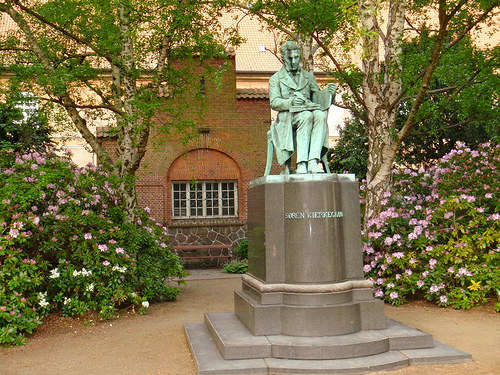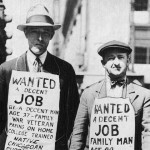
Today is Easter (at the time of writing). There is a soft breeze rustling the ivy on the brick outside my window. It’s not even April, but the air carries a feeling of graduation, baseball, and summer vacation. The sun is beaming in through the pair of French doors which connect my bedroom to the arbor outside. My cat, Pancake, is rolling around in the patches of light, pausing now and again to lick her paws. A bird is chirping, but Pancake doesn’t seem to mind; she is content with sunbathing. There is a sticky note on my desk, it says, “To have faith is to lose your mind and to win God.”
I listened to a This American Life podcast a few days ago. It’s called “Show Me The Way.” Give it a listen. It’s about asking for help, and all of the perils and challenges and anxieties it involves.
This isn’t a profound insight, but it’s worth noting that asking for help is an admission that I, by myself, am not enough, which is itself an admission that I am not God, which, of course, means that I am totally and utterly human, which is a further admission that two years ago I got so sick that I shit my pants. That, to me, is the heart of Christianity; not that I shit my pants, but that God shares in our humanity, that God was born in an amniotic mess, that he peed and pooped and got a snotty nose and when he fell down, he cried, and when cut, he bled. Christianity lives in the mud and the blood and the spilled beer of the planet. It looks at all of the gross things and refuses to turn away.
The admission that I am not enough sounds kind of easy, at least on the surface. We all know what it’s like to need help and to ask for it. I reckon that for most of us, it isn’t a big deal. But it’s one thing to ask for help and then to re-insert yourself back into a culture that provides us with enough illusions of heroism that we never have to meditate on our infinitely small place in the cosmic nothingness or on our impending return to the dirt. “Sure, I needed a little help, but what I really am is eternally capable and accomplished.” It’s another thing to live with that awareness; to ask for help, and then to let that act of asking form who we are, to use our vulnerability as both a way forward and as a defense against the false promises of the American Dream.
Let me explain. I think the acceptance of our vulnerability, on the one hand, makes us a little more free. It let’s us shed off the “shut-upness” of the “automatic cultural man,” since we are able to be our unique, authentic selves, without fear of being “weird.” It let’s us experience the world with less pre-judgement, since we know that what we find won’t threaten the core of our identity. On the other hand, vulnerability offers us a defense against the American Dream, or any number of other idols. When we are in touch with our vulnerability, we are, I think, less inclined to neurotically attach our identity to the passing the things of this world, what Søren Kierkegaard calls “a sickness of despair over something earthly.” Asking for help is the act of recognizing this vulnerability.
Asking for help doesn’t happen in a vacuum. It’s a relational act. We have to ask someone. That’s primarily what the podcast is about. Ira Glass, the host, ironically (or perhaps not?) calls this asking for help a leap of faith.
Prayer is, often, a matter of asking for help, for ourselves, for our friends and family, for our country, for our communities. It’s an acknowledgement that we are not enough, it’s a move from self-reliance to dependence on God. You’re aware of this. You’re also aware that often, too often, our prayers go unanswered. Somewhere along the way, I decided to start praying in solidarity, that when I pray I am with all of the people who have ever prayed and heard no answer. Right now, this is my primary motivation for praying. When I pray and I wake up the next day with this same frustrating chronic illness, I am in solidarity. When I pray and my family remains in this same mess, I am in solidarity, and God is in solidarity with me, because he lived on this planet and in his greatest moment of need he prayed, “My God, my God, why have you forsaken me?” And he heard no answer.
Praying in solidarity is my leap of faith, or so I hope. When I doubt whether God will answer, the fact that I am not alone pushes me to my prayer journal. It is my hope that one day, when I sit down to pray in solidarity with the multitude of people, the dead and the living, whose voices have gone unheard, that I will be surprised to find that God, at last, has answered our prayers. But until that day, which I may not live to see, I will do what I can to have faith, and if that means losing my mind, then so be it.
Johnny Cash has a song about this. Enjoy.
https://www.youtube.com/watch?v=GzChsjd4CzU











